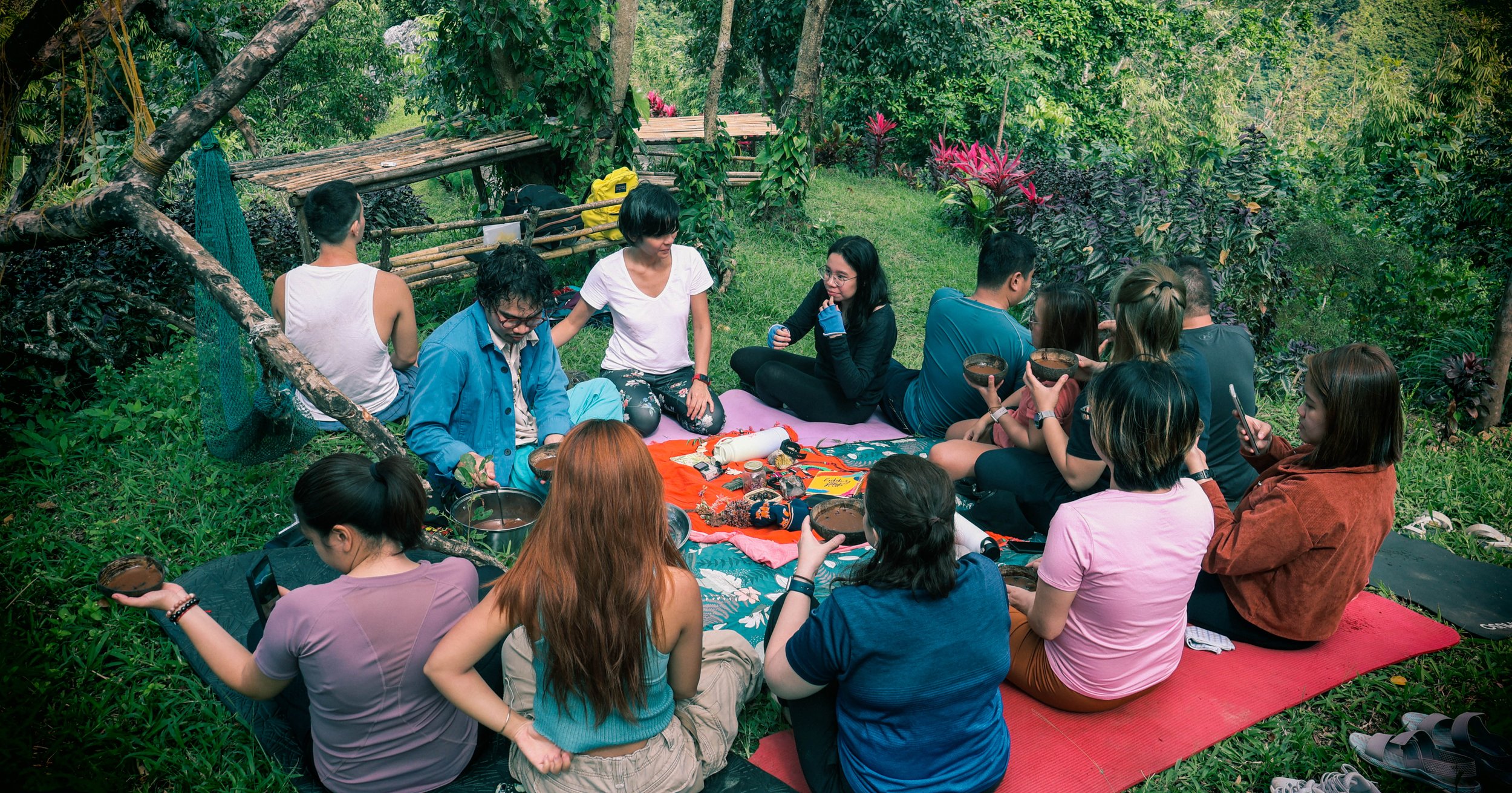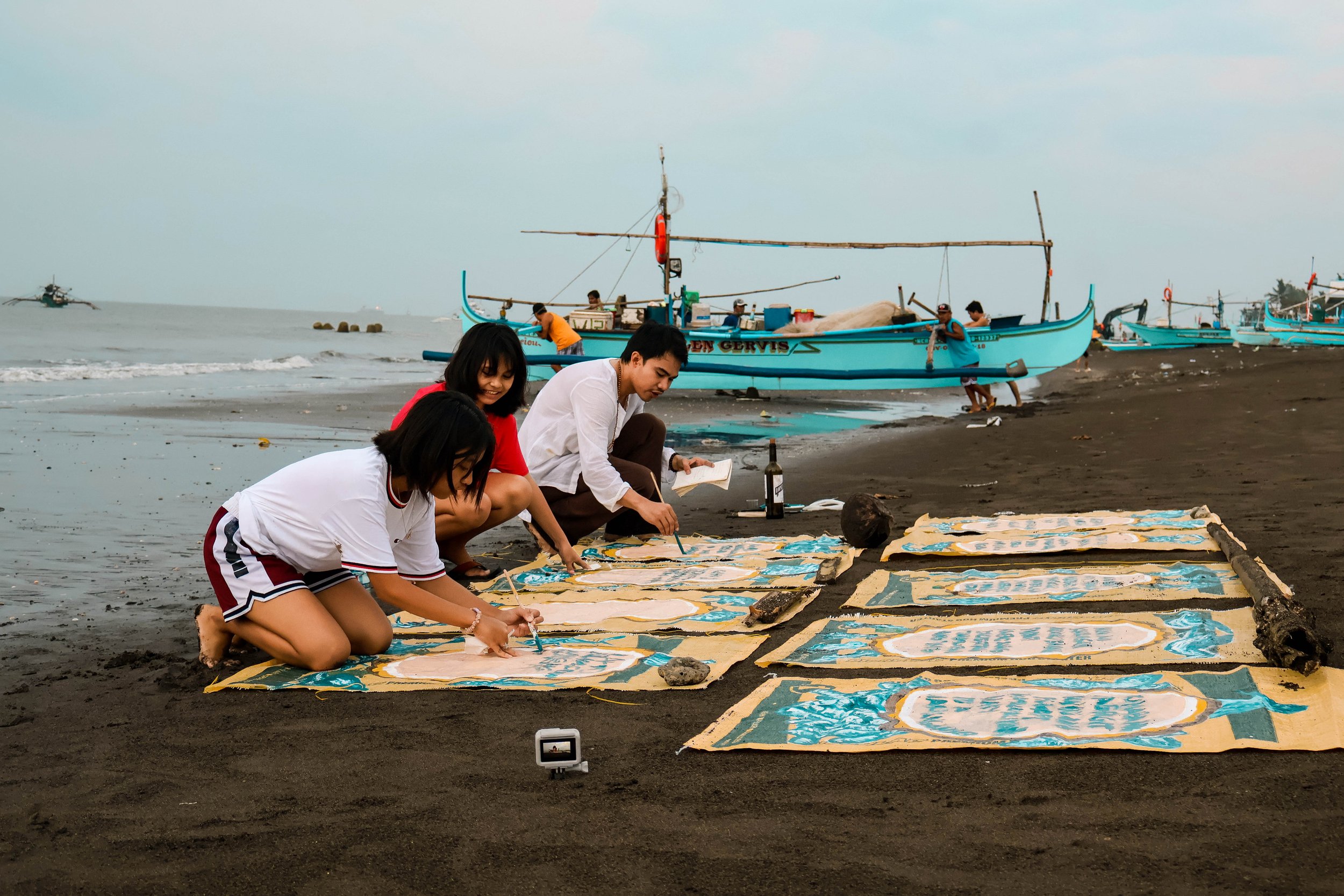Steve Manzano: Mga Mandirigma ng Lokal na Komunidad ng Kalusugan ꕤ Isang Serya ng Talang Dalisay Para sa HEARTH Summit Philippines
Welcome — to our first series of our interviews with community & wellness leaders in the Philippines, a interview series by Talang Dalisay for the upcoming HEARTH Summit Philippines! From people raised in the archipelago, to the diaspora, we are running this interview series until the LUNAS Pilipinas summit in January 14, to encourage our friends around the world to join in learning and de-stigmatizing Filipino culture on wellness & health starting with Siquijor Island.
Name, age, where you are from, where you currently live?
[My name is] Mark Steve Lacierda Manzano, son of Maricel Lacierda Manzano (Compostella Valley, Davao Del Norte) and Ruel Alforque Manzano (Sasa, Davao City) was born in Pasay Metro Manila and raised in Davao City, Mindanao and also Cavite Province in Luzon. His current and closest relation to land is Ifugao, Cordillera Province (Tuwali Igorot Ancestral Land) and Pangatnucan Bukidnon, (Manobo Ancestral Land).
What started your personal wellness journey? Walk us through how this sparked in your life.
As a student of Healing Arts in the Philippines that I learned from teachers from the creative industry which explore holistic approaches in art making and as liberation paths. I started deepening my connection to my body through yoga and breathwork. I became active integrating these methods in my art that serve in the marginalized community, orphanage, schools, and group of friends, and people that I encountered in my own healing journey, for over 9 years, and I work primarily with indigenous and youth in the Philippines. I spent 7 years learning and offering healing service, which I learned from Vipassana Center, Wounded Healer Reiki 2 course, Angel Essences, and Psychism, and also from culture bearer and elder Mamerto “Lagitan” Tindongan from Ifugao Center for Living Culture, and Manobo Baylan elders, and also a student of Filipino Martials arts eskrima from Eskrima De Ocampo- JDCIO - Cavite. I became a resident space holder at Mata Philippines, and program facilitator at Weekend Wild Child, and also a member of the art service group Art Salon founded by Tanya Villanueva. I was the cofounder of deep ecology in Philippines that part of Work that Reconnects founded by Joanna Macy, and continue my service in founding Katataonan A School of Common Folk Healing Arts and Ginhawa Center for Traditional Healing Arts which I offer healing service such as indigenous rituals, energy work, plant medicine, and esoteric resolution.
What personal practices that you consistently have been carrying out has been helping your wellbeing?
I center much of my practice in breathwork, which I learned from Buddhism meditation called insight meditation, that helps my regulation of emotions and intense sensation that I adapt from my work environment everyday. Also I do creative activities such as painting, journaling, and reading books. I was also connected to a Hindu spiritual practice by chanting Hare Krishna mantra every morning. As I become more appreciative of small things, like preparing food, and conducting my daily meditation and journaling, I embrace this as a way of life.
You were recently named as our Ritual Alchemist as a part of our team. Congratulations! What drew you to apply and why are you open to commit to our movement with lunas?
As the first Ritual Alchemist in the Philippines, I was inspired to do the role as my work informed by ritual and community based art. On this journey as an artist that will bring ritual in the contemporary space, I ground myself to co-create a framework for expressing grief and liberation that is rooted in Filipino values and the way of the community, I centralizes my work around decolonization and ecology education. As Lunas movement vision of using Sikolohiyang Pilipino to provide healing in the Diasporic community which aligned with my work in organizing and service that I offer.
As a speaker, writer and educator of many, what are current and future plans people could look forward to when involving our community (Lunas)? How could people give back to our space?
For the future plans, I humble myself to share my knowledge and expertise through workshop, knowledge sharing, and healing service in the community. I am eager to learn and immerse myself working collaboratively with your community for revitalization of Bisayan healing arts. Being with your community and using your platform we can foster a sense of community and belonging among community leaders, environmental defenders, and activists, young professionals, educators, youth, and children.
How do you balance advocating for other’ wellness aside from your own?
As I do my own healing, I humbly offer the experience that I am benefiting to other people by activating third space through free online workshop, healing services and volunteering in children's programs. Practicing boundaries and care work, I realize the power of being held. These initiatives foster a sense of community and provide mutual aid that gives purpose to my life. Being in the community to recenter myself is vital to my healing process. So as I work with a community, a real community with land, and its people, I am part of their hopes and struggles.
What would you say to encourage Filipinos to go out of their comfort zone to destigmatize mental health & wellness?
I would say trust every process. As we are completely different from each other, we have our own blueprint of healing, recentering your belief with the land and wisdom of our ancestors. I was afraid of expressing my thoughts and emotions once but I overcome this by reconnecting with myself, my land, and my people. I always proudly share that “Ang sarap namnamin ang pakiramdam kapag nasa proseso ka ng paglikha dahil walang pagkakamali, at alam kong ang mga ninuno ay nakagabay. Tayo ang gagawa ng ikaliligaya natin sa ating ginawang pahingahan, ikaw ay tiga loob, halika tuloy. Naniniwala akong ang kaluluwa ay palaging makakaalala kung sino tayo, para bumalik sa paghilom. Sa Bisaya ‘Hinumdumi ang imong tambal’ (Remember your indigenous way of healing).”




